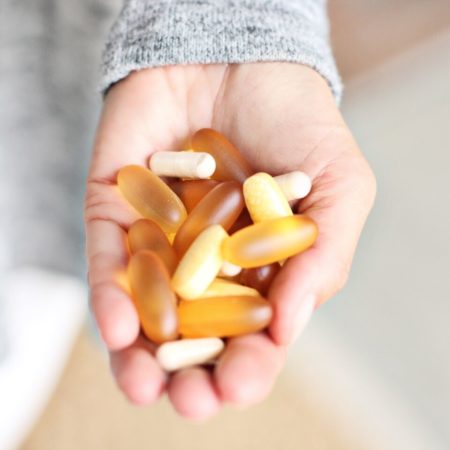As you sip your morning cup of java to start your weekend, you may want to read this before reaching for your second cup. Coffee and caffeine in general is one of those topics that has received so much conflicting press. One article tells us it is healthy, the next to avoid it at all costs. Not that it has phased North Americans: approximately 90% of us consume caffeine in some way every day, making it the world’s most popular drug.
With coffee now being sold in 32oz cups, some of us are driving around town with the equivalent of a half pot of coffee in your hand. Is it too much?
The truth about coffee
Caffeine is one of the fastest acting drugs known to man, absorbed into our cells (including our brain) within minutes of consuming it. Caffeine works its magic by blocking adenosine, a chemical the body releases to tell the brain it’s tired, temporarily telling the brain ‘I’m awake’ when it is trying to say ‘I’m tired’.
However, if you’re a regular caffeine user you may find that it takes more and more caffeine to get the same ‘awake’ effect. That is because our brain is smart (go figure). Regular caffeine users develop a tolerance to caffeine, as our brain simply makes more adenosine receptors to counter the effects of caffeine. So you need more caffeine to block the newly added receptors.
Surprisingly, if you are a regular caffeine drinker, the stimulating and alert feeling that you get from drinking coffee (or your beverage of choice) is from alleviating the side effects of withdrawal. At this point, your brain has become dependent on caffeine, and going without it can lead to symptoms such as drowsiness and headaches (caused from expanding blood vessels in your brain: caffeine constricts these blood vessels).
Is caffeine good or bad for us?
On the good side, caffeine sharpens our alertness, and decreases fatigue. It also prompts the body to draw more energy from fat stores vs the small amount of carbohydrate we have stored in our muscles. In addition, coffee and tea are both rich in antioxidants that, along with caffeine, may help fight some diseases (ie: heart disease, Parkinson’s disease and some types of cancer).
However, on the flip side, caffeine magnifies stress and anxiety and raises blood pressure, health issues that are plaguing our population. Some of us are also genetically programmed to be more sensitive to caffeine and its effects on our ability to sleep: we all know someone who orders regular coffee after a late dinner and can still sleep like a baby (not me).
My take? I believe that consumed in moderation, a couple of cups of coffee or black tea a day (these are standard 250 ml or 8 oz cups folks) is fine for most people. Note that there are exceptions (ie: pregnancy). Interestingly, not everyone responds to caffeine the same way; your genetics play a role in determining how sensitive you are to caffeine.
How much caffeine is ok?
As a general guideline, aim to keep your consumption at around 200 mg (about 2 cups of coffee or 3 cups of black tea): over 300 mg may induce anxiety (typical recommendations are to keep it between 200-400 mg of caffeine and over 600 mg/day isn’t recommended). A regular cup of coffee contains approximately 100 mg of caffeine.
Caffeine pills and energy drinks should be avoided, the latter especially in the younger population, and you will never hear me endorsing pop or soda. Aside from the caffeine, you need to watch what you put in your coffee. A small Double Double Tim Horton’s coffee has 140 calories and 7 grams of fat: and who really orders a small these days?
So, go ahead and enjoy that delicious cup of coffee, just think twice before reaching for the pot again!








Love the information! I just recently started drinking coffee regularly as I am one of the ‘sensitive to caffeine’ people. I use to order fancy ‘grande’ lattes once in a while and then slowly started going about 4 times a week. All that sugar/syrup and cost definitely took a toll and I realized I wasn’t even really drinking ‘real’ coffee so one day I decided to order just a ‘short’ coffee black and added a little almond milk (that we keep in the office) and a pack of brown sugar…I must say that I’m loving it! I don’t drink it every day but when I do I don’t feel as guilty! 🙂 Thanks again for sharing!
That’s terrific! Yes indeed those fancy drinks sure hide some serious sugar!
Interesting article Tori! I wonder if age has anything to do with the effects of caffeine? It seems the older I get, the more it effects my ability to sleep.
What a great topic to discuss, especially at a time when coffee is a surging trend. So lovely to see Dietitian’s at the forefront of what is important to our clients/peers!
Thank you Sharda!
I have a sensitivity to caffeine, so I am trying to acclimate myself to almond milk in coffee (sensitive to lactose too) and start by pouring half of a usual cup of coffee, then adding warm almond milk, vanilla, and cinnamon. That way, I can have ‘2 cups’ when really just having one total. Only in the mornings, or I will be awake all night too if I drink it later in the day!
I too can’t have coffee at night, it wires me !!! I have two cups of cappuccino a day, we use fat free milk & I add a splendor….. sometimes late afternoon I will have hot water and lemon 🍋 or a cup of tea… I really prefer the hot Lemon now a days YUM Thanks for the info 😘
Thank you for the comment Kathy, I’m exactly the same!